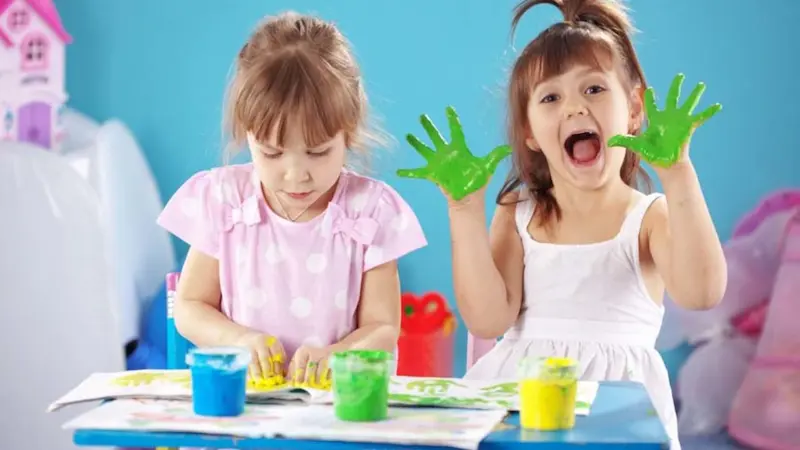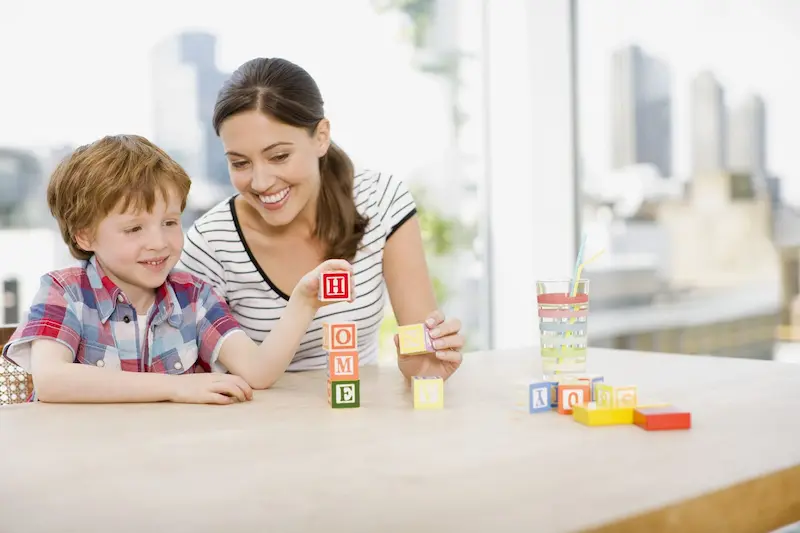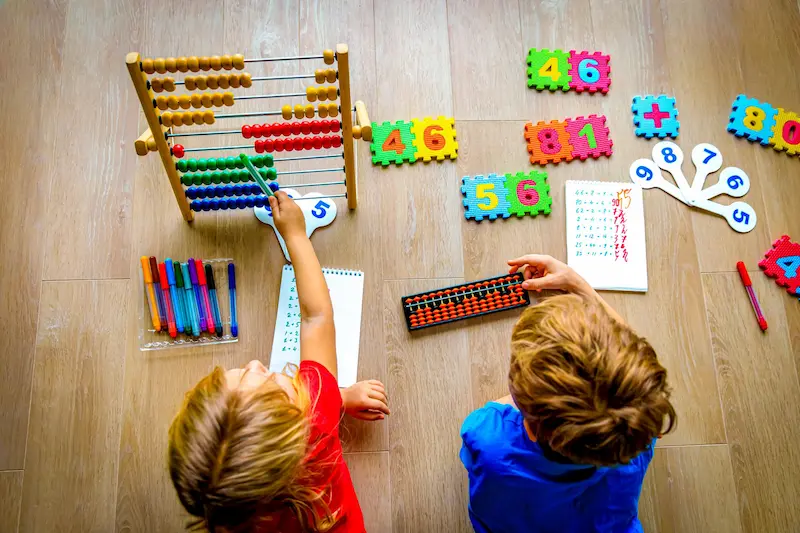In the world of a kindergarten child, every moment is a canvas for learning. Early childhood education lays the foundation for a lifelong journey of discovery, shaping young minds in profound ways. These formative years serve as a crucial period for brain development, where experiences and interactions significantly impact cognitive, emotional, and social growth.
Moreover, early learning not only aids in academic readiness but also contributes significantly to the development of essential life skills like problem-solving, decision-making, and emotional regulation.
Table of contents
- Storytelling and Reading
- Alphabet Exploration
- Numeracy Games
- Creative Art and Craft
- Music and Movement
- Nature and Science Exploration
- Multilingual Exposure
- Social Skills and Communication
- Educational Field Trips
- Gardening and Plant Care
- Life Skills and Chores
- Physical Activity and Sports
- Benefits of Kindergarten Learning Activities
- Conclusion
- Frequently Asked Questions (FAQ’S)
Storytelling and Reading
- Storytelling
Transporting kids to magical realms through stories stimulates imagination and improves children’s language development. The art of storytelling not only entertains but also serves as a powerful tool for developing language and comprehension skills. Through narrative exploration, children not only broaden their vocabulary but also enhance their ability to articulate thoughts and emotions, fostering communication and empathy.
- Reading Sessions
Introducing books tailored for their age group instills a passion for reading and aids language development. Reading sessions provide a gateway to different worlds, allowing children to explore diverse perspectives and cultures. Moreover, through shared reading experiences, children develop critical thinking skills for kids and learn to analyze and interpret information, preparing them for a lifetime of independent learning and discovery.
Alphabet Exploration
- Letter Games
Interactive exercises make learning the alphabet an adventure. Incorporating playful activities like ABC learning games that involve letter recognition and formation instills a sense of excitement about language acquisition. From alphabet scavenger hunts to letter tracing, these activities not only reinforce literacy skills but also encourage active engagement and participation.
- Phonic Activities
Connecting sounds with letters enhances early literacy skills. Understanding phonics forms the cornerstone of reading and writing proficiency. Through phonics-based activities such as rhyming games and sound associations, children develop the fundamental skills needed for decoding words and laying the groundwork for fluent reading.
Numeracy Games
1. Counting and Number Recognition
Counting Adventures: Counting games and activities make numbers come alive. Engaging in playful numerical exercises not only solidifies counting skills but also introduces mathematical concepts in a fun and relatable manner. From counting objects to exploring number patterns, these activities promote a deeper understanding of mathematical principles.
2. Number Recognition
Associating numbers with everyday objects enhances numerical understanding. By linking numbers to real-life scenarios, children grasp the practical applications of mathematics. Whether counting fruits or identifying numbers in their environment, these activities foster a foundational comprehension of numerical concepts.
3. Basic Math Operations
Math Magic: Simple addition and subtraction games lay the groundwork for mathematical concepts. Introducing basic mathematical operations through interactive games and manipulatives not only strengthens computational skills but also develops problem-solving abilities. These activities encourage children to explore different strategies and build confidence in tackling mathematical challenges.
Creative Art and Craft
1. Drawing and Painting
Artistic Expression: Drawing and painting encourage creativity and fine motor skills. Art for kids activities serves as a means of self-expression, allowing children to convey thoughts, feelings, and experiences visually. Beyond fostering creativity, these activities also enhance hand-eye coordination and fine motor skills, laying the foundation for future artistic endeavors.

2. Craft Projects
Hands-On Creations: Crafting promotes problem-solving and innovation. Engaging in craft projects stimulates imagination and resourcefulness. From constructing models to creating sculptures, these activities encourage children to think critically and experiment with various materials, nurturing their ability to think outside the box and find inventive solutions.
Music and Movement
1. Sing-Along Sessions
Melodic Learning: Music sessions boost memory and language skills. Engaging in sing-along sessions not only introduces children to melodies and rhythms but also aids in memory retention and language development. Through music, children explore emotions and cultural diversity while honing their auditory perception.
2. Dance and Movement Games
Rhythmic Fun: Dancing and movement activities aid in physical coordination and social interaction. Encouraging movement not only promotes physical fitness but also helps children develop spatial awareness and coordination. Moreover, these activities provide opportunities for social interaction, fostering teamwork and cooperation.
Nature and Science Exploration
1. Outdoor Nature Walks
Nature’s Classroom: Exploring the outdoors sparks curiosity about the natural world. Outdoor activities for kids provide a hands-on approach to learning about the environment. Through nature walks, children observe and interact with the natural world, fostering a sense of wonder and instilling a deeper appreciation for the interconnectedness of life.
2. Simple Science Experiments
Scientific Curiosity: Basic experiments foster a love for scientific inquiry. Hands-on science experiments allow children to explore cause-and-effect relationships and develop hypotheses. These activities nurture curiosity and critical thinking, encouraging children to ask questions and seek explanations about the world around them.
3. Learning About the Environment
Environmental Awareness: Understanding nature’s importance instills a sense of responsibility. Teaching children about environmental conservation and sustainability instills a sense of stewardship. By exploring topics like recycling, conservation, and ecosystems, children develop a sense of responsibility toward protecting the planet for future generations.

Multilingual Exposure
1. Learning a Second Language
Language Adventures: Introducing a new language broadens horizons and enhances cognitive abilities. Early exposure to multiple languages not only facilitates linguistic proficiency but also enhances cognitive flexibility and problem-solving skills. Learning a second language opens doors to new cultures and perspectives, fostering a global mindset.
2. Cultural Exploration
Diversity Appreciation: Learning about different cultures promotes tolerance and empathy. Exploring diverse cultures allows children to appreciate differences and similarities among people worldwide. This exposure fosters empathy, respect, and a deeper understanding of the richness of human diversity.
3. Multilingual Books and Games
Language Tools: Books and games in multiple languages aid in language acquisition. Immersing children in multilingual resources not only reinforces language learning but also makes the process enjoyable and interactive. By incorporating diverse materials, educators create inclusive learning environments that celebrate linguistic diversity.
Social Skills and Communication
1. Role-Playing and Social Scenarios
Interactive Learning: Role-playing helps kids navigate social situations. Role-playing activities are one of the best social skill activities that enable children to practice communication, problem-solving, and conflict resolution in simulated scenarios. These experiences equip them with essential social skills and emotional intelligence necessary for positive interactions.
2. Teaching Empathy and Cooperation
Emotional Intelligence: Teaching empathy cultivates kindness and understanding. Encouraging empathy helps children develop the ability to understand and share the feelings of others. Through activities that emphasize cooperation and teamwork, children learn the value of collaboration and mutual respect.
3. Effective Communication Skills
Expressing Thoughts: Activities fostering communication build confidence. Creating opportunities for children to express themselves verbally and non-verbally enhances effective communication skills. Whether through storytelling, discussions, or presentations, these activities empower children to articulate their thoughts and ideas effectively.
Educational Field Trips
1. Museum Visits
History Unveiled: Museum visits broaden perspectives and ignite curiosity. Exploring museums exposes children to history, art, and culture, encouraging them to appreciate diverse aspects of human civilization. These experiences spark curiosity and critical thinking, encouraging children to ask questions and seek deeper understanding.
2. Zoo and Aquarium Trips
Nature’s Wonders: Exploring wildlife enhances understanding and appreciation. Trips to zoos and aquariums provide opportunities for hands-on encounters with diverse animal species. These experiences foster a connection with nature and promote awareness about wildlife conservation and habitat preservation.
3. Historical Site Explorations
Time Travel: Historical sites offer glimpses into the past, making history tangible. Visiting historical sites allows children to step back in time and connect with past events and cultures. By exploring historical landmarks, children gain a deeper appreciation for the world’s heritage and the significance of preserving historical legacies.
Gardening and Plant Care
1. Growing Plants and Vegetables
Green Fingers: Gardening teaches responsibility and environmental stewardship. Engaging in gardening activities not only nurtures a love for nature but also instills a sense of responsibility. Children learn about plant life cycles, soil health, and the importance of caring for the environment through hands-on experiences.
2. Learning About the Environment
Nature’s Classroom: Plant care fosters an understanding of ecosystems. Exploring the interdependence of plants, animals, and the environment through gardening activities helps children comprehend the delicate balance within ecosystems. These experiences promote environmental awareness and conservation ethics.
3. Nature-Based Lessons
Outdoor Education: Lessons in nature connect children with the environment. Taking learning outdoors allows children to explore scientific concepts in a natural setting. Whether observing wildlife behavior or identifying plants, these experiences encourage curiosity and a deeper understanding of the natural world.
Life Skills and Chores
1. Responsibility and Independence
Independent Tasks: Teaching responsibility builds self-reliance. Assigning age-appropriate tasks helps children develop a sense of autonomy and accountability. By completing chores independently, children gain confidence in their abilities and learn the value of contributing to household responsibilities.
2. Teaching Basic Chores
Life Skills: Chore for kids instills a sense of contribution. Participating in household chores not only teaches practical life skills but also instills a sense of teamwork and shared responsibility within the family unit. These experiences lay the groundwork for developing a strong work ethic and a sense of accomplishment.
3. Money and Budgeting Lessons
Financial Literacy: Early lessons on money create a foundation for smart financial habits. Introducing basic financial concepts like saving, spending, and budgeting for kids cultivates financial literacy from an early age. These lessons help children understand the value of money and develop responsible financial habits.
Empower your child’s future with Finchamp—an engaging online course that turns financial education into fun, equipping kids with essential money management skills for a lifetime of financial success!
Physical Activity and Sports
1. Physical Education Activities
Active Bodies, Active Minds: Physical activities enhance overall well-being. Engaging in physical education activities not only promotes physical fitness but also contributes to mental health and cognitive development. Regular exercise supports healthy growth and development while fostering a positive attitude towards an active lifestyle.
2. Exercise and Health Awareness
Healthy Habits: Encouraging exercise promotes a healthy lifestyle. Teaching children the importance of regular exercise and healthy habits instills lifelong practices that contribute to overall well-being. These activities promote awareness of personal health and the benefits of staying active.
Benefits of Kindergarten Learning Activities
1. Cognitive and Social Development
Holistic Growth: Activities nurture cognitive and social skills crucial for development. Kindergarten learning activities support the holistic development of children by fostering cognitive skills such as problem-solving, critical thinking, and creativity. Moreover, these activities promote social skills like teamwork, communication, and empathy, laying a strong foundation for future success.
2. Academic Preparedness
Strong Foundation: Early learning activities lay the groundwork for academic success. By introducing foundational concepts in literacy, numeracy, and other subject areas, kindergarten activities prepare children for future academic challenges. These experiences build confidence and enthusiasm for learning, setting the stage for continued academic achievement.
3. Lifelong Love for Learning
Curiosity Cultivation: Fostering a love for learning creates lifelong learners. The diverse range of engaging activities in kindergarten not only sparks curiosity but also instills a passion for lifelong learning. By nurturing a positive attitude towards exploration and discovery, children develop the motivation and curiosity necessary for continuous personal and intellectual growth.
Conclusion
Kindergarten learning activities transcend conventional education. They shape young minds, instilling a passion for exploration and setting the stage for a bright, inquisitive future. By creating a dynamic and stimulating learning environment that integrates play, creativity, and hands-on experiences, educators empower children to become lifelong learners equipped with the skills, knowledge, and enthusiasm needed to thrive in an ever-evolving world.
To get your hands on more educational and free resources on coding for kids, robotics for kids, financial education for kids, etc., do check out the BrightCHAMPS Page now!
Frequently Asked Questions (FAQ’S)
A1. Parents can strike a balance between play and learning by incorporating educational elements into playful activities. They can engage children in games that involve counting, sorting, or problem-solving. For instance, using building blocks to create patterns or playing outdoor games that encourage physical activity while teaching fundamental skills can be beneficial.
A2. Yes, there are various resources available for different activities. For instance, for learning math concepts, there are educational apps, games, and worksheets tailored to specific age groups. Similarly, for fostering creativity, there are art supplies, storybooks, and online platforms that offer engaging content for children.
A3. Many activities designed for young children align with educational standards by targeting specific developmental areas such as cognitive, social, emotional, and physical skills. These activities often integrate elements that support early learning milestones outlined in educational frameworks.
A4. The recommended duration for activities at this age varies depending on the child’s attention span and developmental needs. On average, children between 3 to 5 years old can engage in structured activities for around 15 to 30 minutes at a time. However, it’s important to allow for unstructured playtime as well, which can be longer and less guided.


 We are an army of educators and passionate learners from BrightChamps family, committed to providing free learning resources to kids, parents & students.
We are an army of educators and passionate learners from BrightChamps family, committed to providing free learning resources to kids, parents & students.








